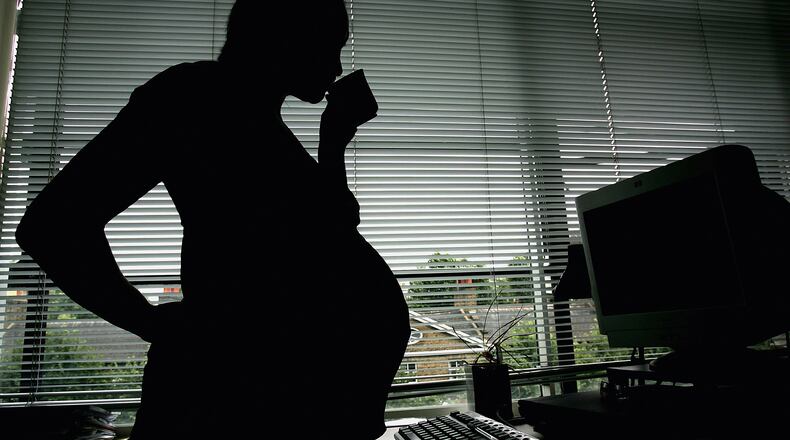A 60-year-old British woman won one round Thursday in the legal battle to allow her to give birth to her own grandchild after her daughter's death in 2011.
The daughter, referred to as A by London's Court of Appeals, was diagnosed with cancer in 2005. She died of bowel cancer in 2011 at age 28, according to the New York Times.
Before her death, A expressed her wish to have children, but she became too sick. Instead, she had her eggs frozen and told her mother, referred to as Mrs. M, that she wished for her to give birth to and raise the child using A's eggs.
"They are never going to let me leave this hospital, Mum; the only way I will get out of here will be in a body bag," A told her mother after realizing in 2010 that her illness was terminal, according to court records. "I want you to carry my babies. I didn't go through the IVF (in-vitro fertilization) to save my eggs for nothing. I want you and Dad to bring them up. They will be safe with you. I couldn't have wanted for better parents, I couldn't have done without you."
However, when Mrs. M attempted to have the eggs transferred from a London hospital to New York, where she planned to get treatment, her request was denied by the agency that regulates fertility in the United Kingdom, the Human Fertilisation and Embryology Authority.
In its 2014 decision, the Authority found that A was not properly informed of all that would happen to the eggs after her death. She did not specify in any written documents her wish to have her mother act as her surrogate, permission for the eggs to be exported overseas or give consent to using donor sperm to create an embryo, the Authority ruled.
The ruling was upheld in 2015 by the High Court in London. The family appealed the decision and the Court of Appeals held arguments on the case in May.
"I have absolutely no doubt in my mind that, as far as A was concerned, her eggs held a life force and were living entities in limbo waiting to be born," Mrs. M said, according to court records. "She was clear that she wanted her genes to be carried forward after her death. She had suffered terribly and this was the one constant in her remaining years from which she never wavered."
On Thursday, the Court of Appeals ruled that the fertility authority focused too much on whether A was informed about issues that did not pertain to her as she battled a terminal illness when she made clear through multiple conversations that she wanted her mother to be her surrogate.
"Since no other surrogate was envisaged, no one else could be the mother," Lady Justice Mary Arden wrote in the Court of Appeal's judgment.
The Human Fertilisation and Embryology Authority on Thursday said it would reconsider the case "as soon as possible," the New York Times reported.
The court did not make any ruling on possible ethical questions regarding a woman giving birth to her own grandchild, saying such questions were outside the court's purview, according to The New York Times.
About the Author
The Latest
Featured


